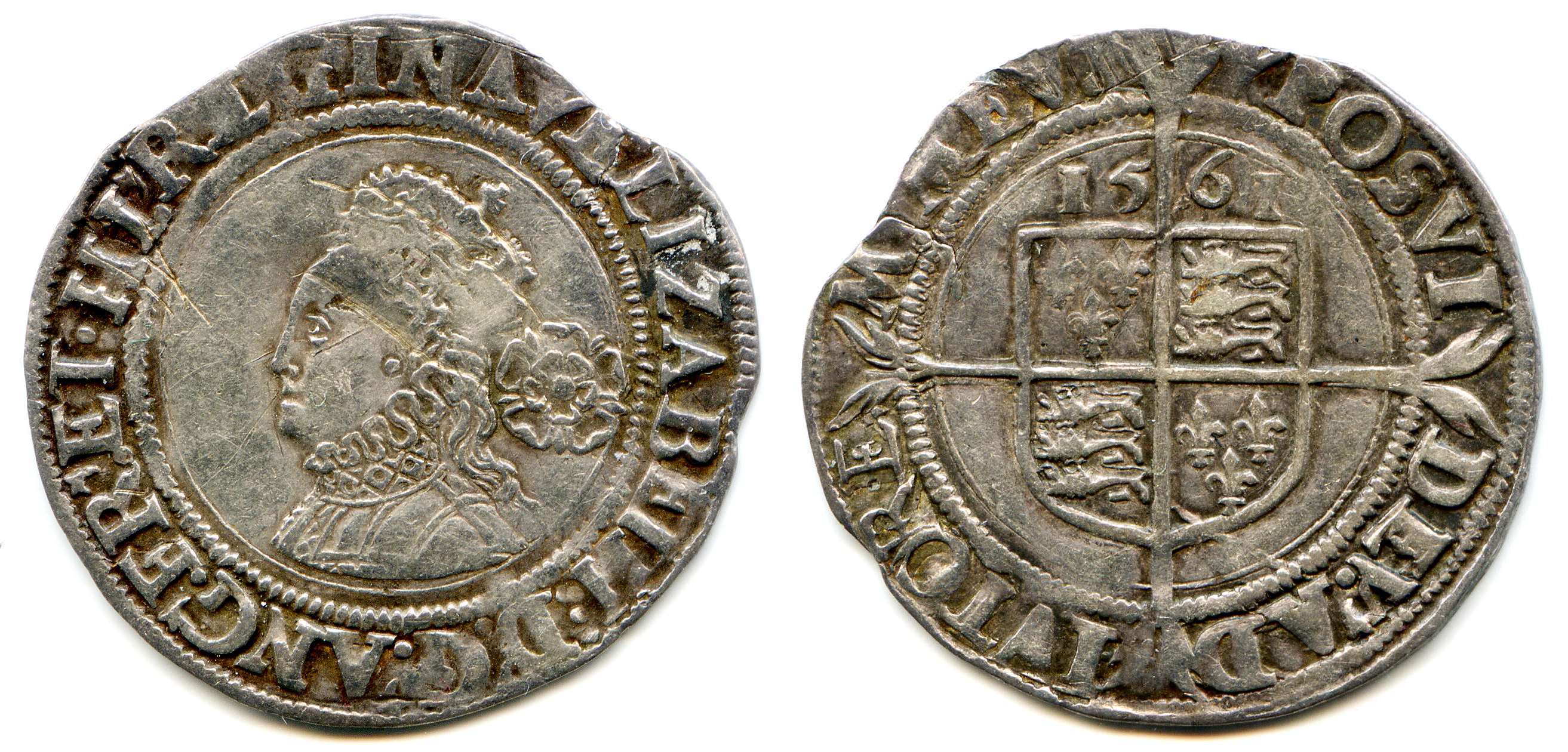Elizabeth I
Queen of England, 1558-1603 AD

Silver sixpence, 25.5 mm. 1561 AD.
Obverse: Portrait of Elizabeth, facing left. Legend, in Latin with extensive
abbreviation, "Elizabeth, by the grace of God, Queen of England, France
and Ireland.
Reverse: Royal shield over long cross. Latin legend: "I
have made God my helper.
Elizabeth I was the daughter of Henry VIII and his second wife Anne Boleyn, who was executed in 1536 AD on suspicion of infidelity. Elizabeth grew up without a mother's care. On the death of her half-brother, Edward VI, she sided with her Catholic half-sister, Mary I. Despite this fact, Mary, suspicious of Elizabeth's identification with protestantism, had her imprisoned for her alleged part in a rebellion led by Sir Thomas Wyatt.
Ascending to the throne on Mary's death in 1558, Elizabeth reduced animosities and promoted stability by engineering a moderate Protestant Church settlement, effectively establishing a distinctive Anglican church.
Although Elizabeth never married, she had many suitors. She was greatly attracted to Robert Dudley, earl of Leicester, and might have wed him had he not been suspected (probably incorrectly) of murdering his wife. Elizabeth rejected an offer of marriage from the Spanish king, Philip II, but she did allow lengthy courtships by two members of the French royal family, the future King Henry III of France, and his brother Francois. She prided herself on the fact that she lived and died a virgin -- the colony Virginia was named for her -- and she turned her single state to diplomatic advantage, keeping foreign suitors dangling for years.
Politics was inseparable from religion, and Elizabeth withstood many threats, originating both at home and abroad, from Catholics intent on regaining Catholic control of the throne. Perhaps the gravest threat to Elizabeth came in 1588 from Philip II of Spain, who sent his "Invincible Armada." England managed to repel the attack, aided by a "Protestant wind", but war continued to 1604.
Elizabeth was popular with her subjects, and her reign is seen as a period of generally effective government, cultural development, and increased international status.